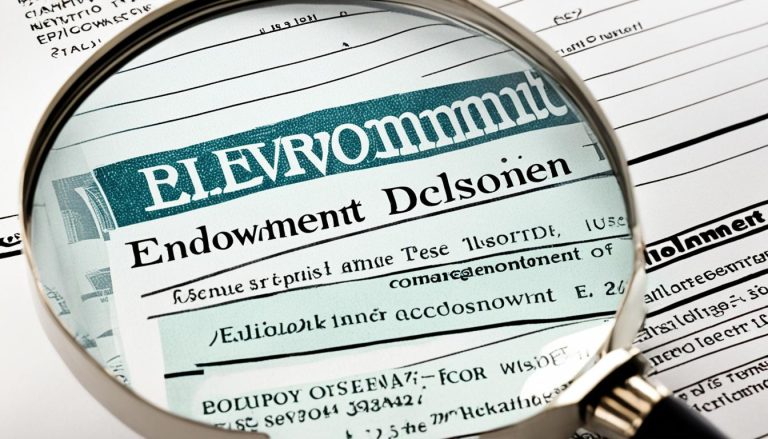Mortgage redemption, also known as mortgage discharge or property loan settlement, is the process of paying off the outstanding balance on your home loan, resulting in its complete closure. Whether you are looking to pay off your mortgage in full, switch lenders through remortgaging, or move to a new property, understanding how mortgage redemption works is crucial in achieving your financial goals.
The Mortgage Redemption Process
When it comes to mortgage redemption, understanding the process is crucial. Whether you are looking to pay off your mortgage completely, switch lenders, or move to a new property, here are the key steps involved:
- Contacting the lender: The first step is to inform your lender about your intention to pay off the mortgage. You can reach out to them by phone or through their online portal. It’s important to maintain clear communication with your lender throughout the process.
- Mortgage redemption statement: Upon contacting your lender, they will provide you with a mortgage redemption statement. This statement outlines the total amount owed on the mortgage, including any remaining balance, interest due, and additional fees.
- Involvement of a solicitor: In most cases, a solicitor is involved in the mortgage redemption process. The solicitor handles the transfer of title deeds and ensures that all legal aspects are properly addressed. They play a crucial role in ensuring a smooth and seamless process.
- Applying for a new mortgage: If you are moving to a new lender, it will be necessary to apply for a new mortgage. This involves submitting an application, providing the required documentation, and going through the approval process.
- Transferring money and legal documents: Once all the necessary steps are completed, the final payment, including any fees, can be made. This can be done through various methods such as internet banking, CHAPS payment, or by cheque. Additionally, the transfer of legal documents related to the property will be handled by your solicitor.
By following these steps and maintaining open communication with your lender and solicitor, you can successfully navigate the mortgage redemption process.

Understanding Mortgage Redemption Statement
A mortgage redemption statement is a crucial document provided by the lender that outlines the remaining amount owed on the mortgage. It provides homeowners with valuable information about their mortgage payoff journey. The statement includes various important details, such as:
- The outstanding balance on the mortgage
- The amount left to pay
- The interest due
- Any redemption fees or additional fees associated with the mortgage redemption process
The mortgage redemption statement serves as a comprehensive summary of the homeowner’s financial obligations to the mortgage lender. It acts as a guide for borrowers, allowing them to assess their progress in paying off their mortgage and understanding the financial implications of the redemption process.
It is essential to note that the redemption statement is typically valid for four weeks from the date it is issued. Within this timeframe, it is crucial for homeowners to make the payment to avoid incurring additional interest charges.
Homeowners can obtain a redemption statement from their lender through various convenient methods, including phone inquiries, internet banking portals, or by visiting their local branch. The flexibility in obtaining this statement ensures that homeowners have convenient access to the information they need to make informed financial decisions.
Understanding the mortgage redemption statement empowers homeowners to have a clear picture of the amount they owe, the interest due, and any associated fees. This knowledge allows borrowers to plan their resources effectively and make timely payments to achieve their goal of mortgage redemption.

By staying informed and proactive, homeowners can effectively navigate the mortgage redemption process and pave the way for a successful mortgage payoff journey, ultimately achieving their long-term financial goals.
Understanding Mortgage Redemption Fees
When it comes to paying off your mortgage before the agreed-upon timeframe, there are additional charges to consider known as mortgage redemption fees. These fees are separate from early repayment charges, which are applicable if you decide to leave your mortgage deal early. Understanding the specific redemption fees associated with your mortgage is crucial to making informed financial decisions.
The redemption fees can vary throughout the duration of your mortgage and are outlined in the mortgage redemption statement provided by your lender. This statement details the remaining amount owed on the mortgage, including any interest due and associated fees. By carefully reviewing the redemption statement, you can get a clear picture of the costs involved in paying off your mortgage early.
When deciding whether to pay off your mortgage prior to the agreed-upon term, it’s important to consider both the potential interest savings and the associated fees. Paying off your mortgage early can save you money in the long run by reducing the amount of interest you pay over the life of the loan. However, you must weigh these savings against the redemption fees to determine if early repayment is the right choice for you.
| Redemption Fees | Early Repayment Charges |
|---|---|
| Mortgage discharge fee | Penalty for breaking the mortgage deal |
| Administration fee | Exit fee when leaving the mortgage early |
| Legal fees | Percentage of the outstanding loan amount |
As shown in the table above, redemption fees can include charges such as a mortgage discharge fee, an administration fee, and legal fees. These fees can vary depending on the terms of your mortgage agreement. It’s important to note that the specific redemption fees for your mortgage will be outlined in your mortgage redemption statement.
Considerations When Paying Off Your Mortgage Early
When considering paying off your mortgage early, it’s essential to review your mortgage agreement and understand the terms and conditions. Some mortgages may have restrictions on early repayment or may charge higher redemption fees than others. Additionally, it’s important to compare the potential interest savings against the redemption fees to ensure it is financially beneficial for you in the long run.
Taking the time to understand mortgage redemption fees and early repayment charges can empower you to make informed decisions about your mortgage. By carefully reviewing your mortgage redemption statement and considering the associated costs, you can determine the best course of action for your financial situation.
Calculating Your Mortgage Redemption Figure
When it comes to paying off your mortgage, calculating the mortgage redemption figure is essential. This figure represents the total amount you need to settle in order to fully redeem your mortgage. To determine this figure, homeowners must consider several factors:
- The current mortgage balance
- The accrued interest up until the redemption date
- Any applicable redemption fees or early repayment charges
By taking these factors into account, you can get a clear picture of the amount required to settle your mortgage debt.
One of the easiest ways to obtain your redemption figure is by contacting your lender directly. They are equipped to provide you with the full redemption figure, taking into account all relevant factors. Some lenders even offer convenient online redemption calculators, allowing you to calculate your mortgage redemption figure at your own convenience.
Alternatively, solicitors can also assist in calculating your redemption figure. However, it is important to note that additional fees may apply for their services. If you choose to engage a solicitor, make sure to discuss their fees and gain a thorough understanding of the costs involved.
Once you have the calculated mortgage redemption figure in hand, you will have a clearer understanding of the amount required to settle your mortgage. This information can help you plan your finances effectively and consider your options for paying off your mortgage.

| Factors to Consider for Calculating Mortgage Redemption Figure | Example Figures |
|---|---|
| Current Mortgage Balance | £250,000 |
| Accrued Interest up until Redemption Date | £5,000 |
| Redemption Fees | £1,500 |
| Total Mortgage Redemption Figure | £256,500 |
Conclusion
In conclusion, mortgage redemption is a significant process that enables homeowners to pay off their mortgage in full or as a step towards remortgaging or moving to a new property. Understanding the steps involved, such as contacting the lender, obtaining a mortgage redemption statement, and potentially applying for a new mortgage, is crucial. Homeowners should also be aware of potential fees, including redemption fees and early repayment charges. Careful calculation of the mortgage redemption figure, considering the current mortgage balance, interest, and fees, is essential to making informed financial decisions. By familiarising themselves with the mortgage redemption process, homeowners can take control of their financial future and work towards becoming mortgage-free.
FAQ
How does mortgage redemption work?
Mortgage redemption can occur when a homeowner decides to pay off the mortgage completely, switch lenders through remortgaging, or move to a new property. The process involves contacting the lender, obtaining a mortgage redemption statement, involving a solicitor, and applying for a new mortgage if necessary.
What is involved in the mortgage redemption process?
The mortgage redemption process begins by contacting the lender to inform them of the intention to pay off the mortgage. The lender will provide a mortgage redemption statement, and a solicitor is usually involved in handling the transfer of title deeds and the legal aspects. If the homeowner is moving to a new lender, they will need to apply for a new mortgage.
What is a mortgage redemption statement?
A mortgage redemption statement is a document provided by the lender that outlines the remaining amount owed on the mortgage, including the outstanding balance, interest due, and any associated fees.
What are mortgage redemption fees?
Mortgage redemption fees are additional charges that may be incurred when paying off the mortgage before the agreed-upon timeframe. These fees are separate from early repayment charges.
How can I calculate my mortgage redemption figure?
To calculate the mortgage redemption figure, homeowners need to consider factors such as the current mortgage balance, interest up until the redemption date, and any applicable redemption fees or early repayment charges. Lenders can provide the full redemption figure, and some offer online redemption calculators for convenience.
Why is mortgage redemption an important process?
Mortgage redemption allows homeowners to pay off their mortgage completely or in preparation for remortgaging or moving to a new property. It helps to secure their financial future and potentially become mortgage-free.






